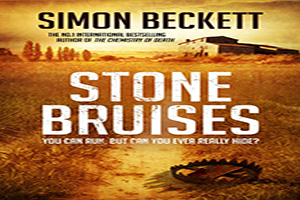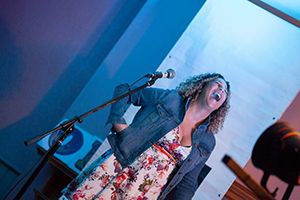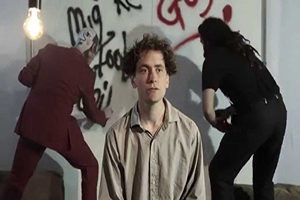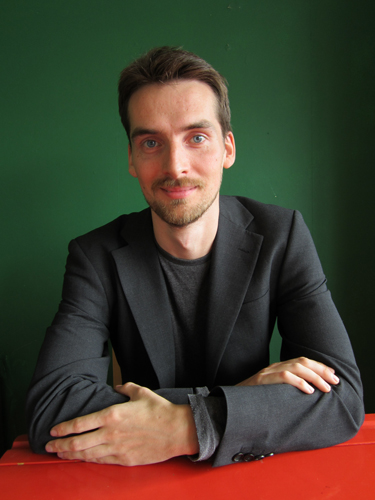
Tim Leach is an author living in Sheffield who has variously described himself as an imposter, a climber, and a whisky and chess enthusiast (although we make no comment on the continued quality of his game as the whisky flows). He was also short listed for the Dylan Thomas prize for his debut novel ‘The Last King of Lydia’, is reading at our event in celebration of the Picture the Poet exhibition in October and has just released his second novel ‘The King and the Slave’. We figured it was high time for a natter.
Tell us a bit about the novels.
The two books are ancient world historical fiction, set in the 6th Century BC in the Near East. They focus on a king called Croesus, who was famous in his time for both his spectacular wealth and a dramatic fall from power. It’s a character and ideas driven book like I, Claudius rather than a bloodthirsty swords and sandals epic, focusing primarily on the nature of happiness, and what it means to try and be a good person in a savage world.
It’s been described as “a thinking man’s 300”, which is my favourite one line description of the books. We even share the same source material, a book by an ancient Greek writer called Herodotus.
What first attracted you to the source text?
Herodotus was known as both “The Father of History” and “The Father of Lies”, and his book (The Histories) is an intoxicating mixture of myth and truth. It’s great fun to work with as a novelist – a rich, complex, strange world, filled with bloody and fascinating stories, but you never quite know what’s true and what’s not, which gives a writer plenty of room to manoeuvre. Above all else, what drew me was that the story of Croesus feels half finished in Herodotus, the narrative leaves him behind just as the story gets good. As a historical novelist, you’re always looking for these half finished stories – where history fails us, fiction can succeed.
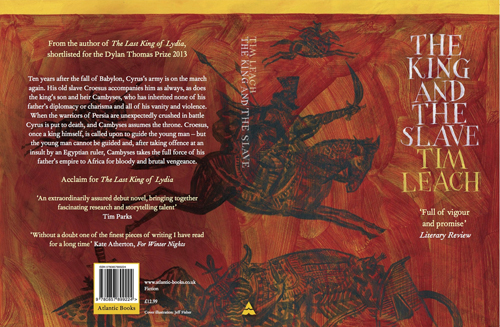
Do you have a particular method?
Slow and steady, writing 500 – 1000 words every day. It’s not a huge amount, but it stacks up over time. The average novel is about 80 – 90,000 words, so even at the relatively slow pace of 500 words a day, it takes less than a year to finish a first draft. The challenge is sticking with it consistently, even on the days when you really don’t want to write. I plan my novels out roughly, but am always open to improvising when the story takes you somewhere you didn’t expect to go.
How did it feel to be short listed for such a prestigious award?
Being shortlisted for the Dylan Thomas Prize was wonderful, the best thing that I could have hoped would happen with the first book. It gave a tremendous sense of validation, and an unknown author like me really depends on awards, shortlists and reviews to get the word out about a book.
You’ve written before about impostor syndrome?
I think many people struggle with impostor syndrome, but writers may be more prone to it than others – long periods of time spent working alone on a project with no outside validation, then the exposure of that project to highly subjective praise and criticism.
I try to work through it in three stages. The first stage is being convinced you’re a terrible fraud, always about to be found out and denounced by everyone you know. Super stressful! In the second stage, you still think you’re a fraud, but since you’ve not yet been found out, you begin to believe that you’re a particularly excellent fraud who seems to be good at fooling people, and so you’re not in as much danger of being caught. This is slightly less stressful. In stage three, you begin to convince yourself that you might actually be alright at the thing you are doing. There are rumours of a stage four, where you genuinely believe you’re really good at your art, but I don’t think I’d want to get there. A certain degree of insecurity is a useful motivational tool.
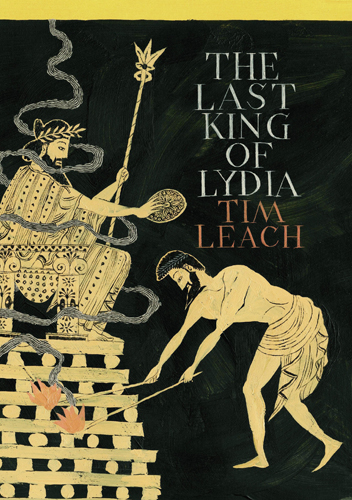
Do you have any advice for writers just starting out?
Stick with it. Most aspiring writers expect to become brilliant almost immediately, but it takes many many years of writing before you begin to write work of a professional standard – ten years is the average, I believe. You’ve got to look at it as a long, slow process of development, like becoming a brilliant musician or a painter. Write a lot, read a lot, get good feedback on your work and try to improve. There’s really not much more to it than that, but it is surprisingly difficult to put into practice.
Also, ideas are overrated. A great idea is worth nothing without the skill and experience to tell a good story.
What’s next for you?
I’m superstitious about talking about work in progress stuff, but I’m currently working on a novel set in a very different time and place. Somewhere a little further ahead in time than the ancient Near East, and a whole lot colder…
Interview by Sara Hill.
Author image © Emma Leach.
Cover art © Atlantic Books.

